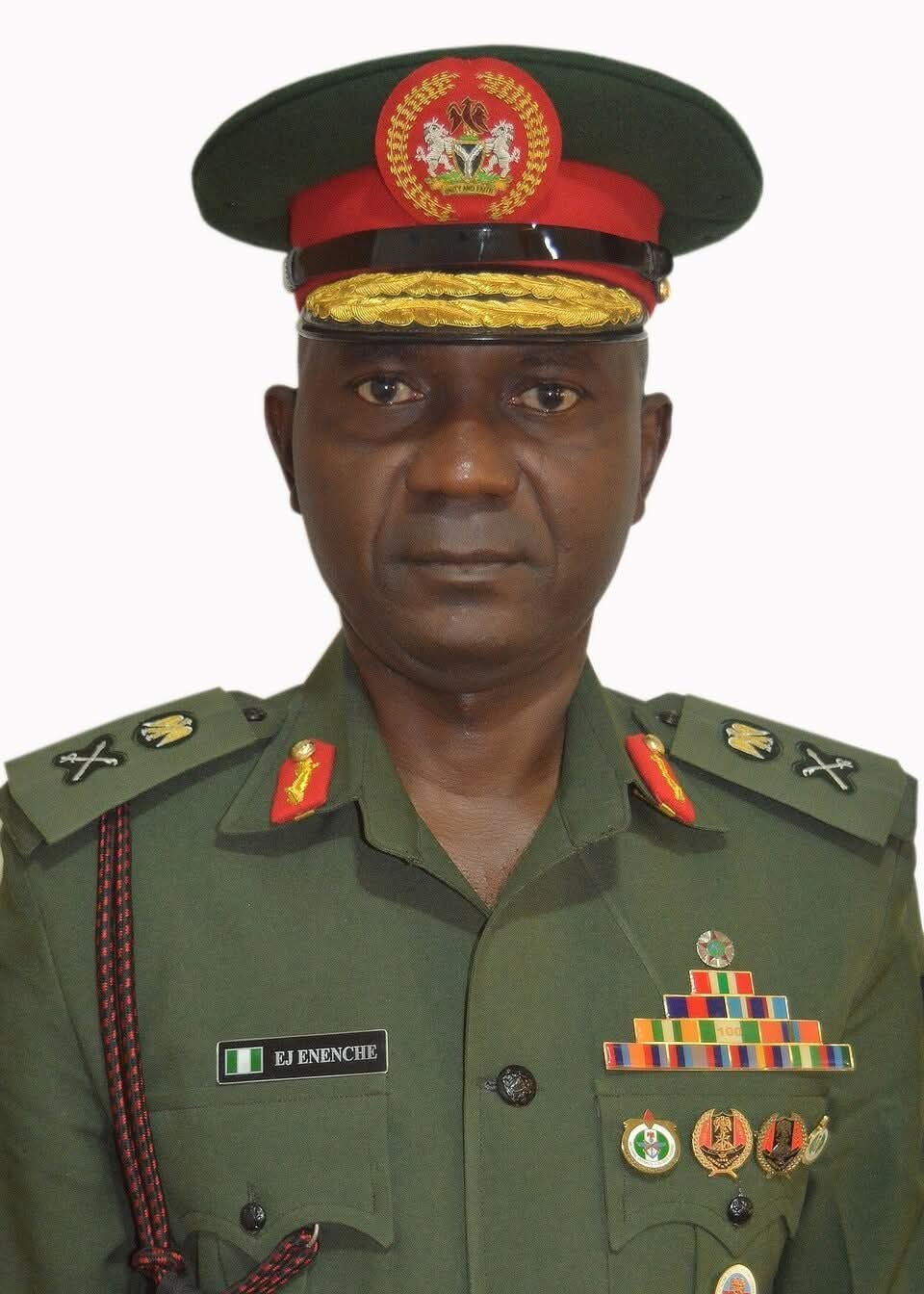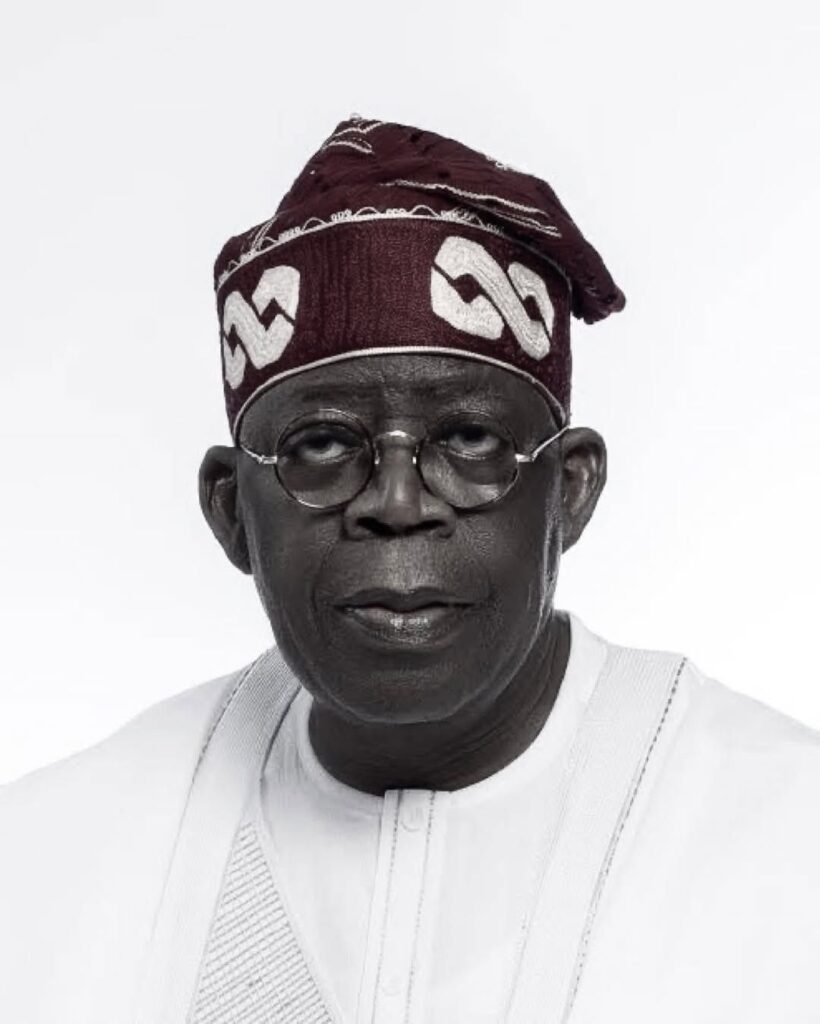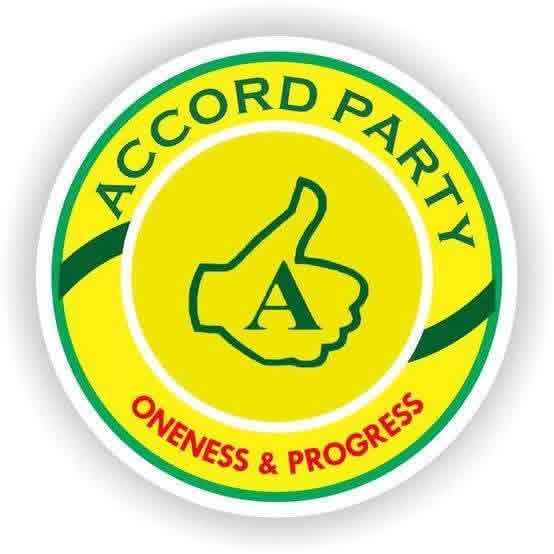News
Ambode And The Street Traders Of Lagos By Reuben Abati
I am writing this piece after holding a series of conversations with Lagos street traders and hawkers who seem not be aware of or are just indifferent to, or may be they are intrigued by, the fact that the State Governor, Akinwunmi Ambode has declared on television that the state government is prepared to enforce an existing law banning street hawking.
The relevant law, the Lagos State Street Trading and Illegal Market Prohibition Law, 2003 prescribes a punishment of N90, 000 or a six-month jail term, for both the buyer and the seller of any goods or services on the streets. So I asked this vendor, who kept pushing copies of the day’s newspapers in my face, so close, you wouldn’t even be able to read the headline free of charge.
“My friend, are you aware that what you are doing is illegal? You never hear say Governor Ambode don ban street trading?”
“That one no concern vendor oh. Na these other people wey dey sell chewing gum and water dem dey talk about”
“No. Street trading is street trading. You are hawking your newspapers, why don’t you get a shop or a stand?”
“Make I open shop to sell newspaper? Na for inside traffic people dey buy newspaper, oga?’”
“I just hope they won’t arrest you. The fine is N90, 000 or six months in jail.”
“Oga, you wan buy paper? Which one you wan buy, I beg. See, the thing be say, for this Nigeria, anytime wey anybody reach power, dem go just dey do wetin dey like. Dey no dey pity we poor people at all.”
I laughed and drove off.
“Water! Water!”, I yelled at a young man carrying a small basket of drinks. He ran to the car from the other side of the road, side-stepping a Keke Marwa and almost colliding with a motorcycle.
“How much?”
“N100”
“Can I buy because I hear the Governor says they should arrest anybody that is hawking anything in Lagos. And this is Agidingbi oh, too close to Alausa. Please.”
“Oga buy wetin you wan buy. If we no sell water for traffic, you know how many people go don die for inside go-slow. When traffic start now, even Ambode go buy water for inside traffic drink.”
“Oya, bring it quickly. Don’t let those LASTMA people see you.”
“Which LASTMA people? Oga, relax. Na we-we. As we dey this street so, nobody fit remove us.“
As I listened to his attempt to share his knowledge of the streets, I heard the clanging of a bell. A bicyclist was approaching, a mini-cooler, hanging conspicuously in his front. Fan Ice! Fan Milk! A young girl passed, carrying a tray of groundnuts. The early morning traffic was beginning to build up, 24 hours after Governor Ambode huffed and puffed on television about street hawking.
I immediately remembered Olajumoke Orisaguna, the Nigerian Cinderella, who made it from street hawking to the runway. It occurred to me to ask one of the hawkers.
“Do you know Olajumoke?”
“Olajumoke, oni bread. Oga you sef, e ti jasi. Don Jazzy, Baba. If Olajumoke no sell bread for street, how dem for discover say him get talent. Oga, as you me so, I be student oh for Polytechnic. The money I make from the street, that ‘s what I use to maintain myself and one day, if I become Governor in this country, I‘ll remember and I will not ban street hawking.”
That was some sobering thought. The sociology of street trading is worth understanding. It is mostly a source of employment for many persons with low income and low education, and in its more structured format, a large part of the informal sector in many parts of the world. For the buyer who has been demonized along with the seller in the Lagos state law, street trading actually provides easy access to a lot of goods and services, and when you are trapped in the ubiquitous traffic hold-ups across the city, running into hours oftentimes, it helps to just look out the window and buy any food item ranging from fish, to fried meat and shrimps, loaves of bread, biscuits, gala, meat pie, water, beer and any other drink. If it is a rainy day and you need to step out of the vehicle, you can buy an umbrella while in the traffic. You can also get served hot milk, tea or coffee, or have a shoe-shiner give your shoes a new, clean, gleaming look.
On a sunny and humid day, and you are thirsty, you can have very cold fan milk, or any other drink to cool down your system. Pop-corn, roasted maize, walnuts, name it, everything is available by the roadside, as the traffic crawls. If you have issues with your phone, or your wrist-watch, or even your clothes, you can buy new ones on the streets. Books, musical CDs, electronics, even sex toys, and aphrodisiacs. There is a special connection between traffic and street trading. But there are also challenges for all parties involved: for the buyer, you could get sold fake or risky stuff, and your money could be stolen – always collect the goods and your change before you hand over any amount.
The sellers always have to contend with physical risk and sexual abuses, run-ins with extortionist law enforcement officials, nerve-wracking exposure to the elements, and competition for space. People sell on the streets because they cannot afford to rent shops or erect structures, and in any case, government is often part of this problem. Markets are taken over by the authorities with the intention to modernize them, but when the shops and stalls are built, the original traders can no longer afford them because they would have been taken over by the rich and prized beyond the reach of the poor who are then forced onto the streets, thus deepening the agony of the displaced and the marginalized. This is the story of Tejuoso market in Lagos, as is the story of others across the country. If street traders had a choice, they would also acquire permanent structures where they can display their wares in safety. If they could help it, they will also sit in the comfort of air-conditioned vehicles. Traffic and street trading further define an existential part of the urban social order, and in Lagos as elsewhere, the character, pulse and soul of the city.
The convenient tendency for government officials is to dismiss the street as the haunt of miscreants, criminals and the dubious and street trading as a nuisance to the social order. This is what Governor Ambode of Lagos has done. The trigger for his televised sanctimony is the recent clash in Lagos at Maryland and Ojota, involving the law, traffic and street traders with tragic consequences. We are told that Kick Against Indiscipline (KAI) officials had given a hawker the chase, that fateful day. As the young man ran across the busy expressway, he found himself in front of an on-coming state-government owned BRT bus, which crushed him instantly – his intestines gouged out. This resulted in mob action.
In the process, 49 BRT vehicles, belonging to the state government were torched, and according to the Governor, it will cost the state government “almost N139 million to put those buses back on the road.” The Governor sounds as if the loss of these buses is more painful than the death of Nnamdi, the street hawker who was chased to his death. Haba, Governor, se oro ni yen! The Governor needs to be reminded of the over-zealousness of KAI-LASTMA officials and the recklessness, also, of BRT bus drivers, and the fact that N139 million may replace buses, but it will not replace a life that has been lost. It is also hard to believe that the Governor’s position is based on the outcome of investigations, which try to distance the state officials from the accident, and even if this is so, the decision to exhume a law that is to all practical purposes, a dead law, only enforced opportunistically, does not fully address the issue. A law is dead as an instrument of social justice when it is openly defied, disregarded, resisted and attempts to enforce it are openly ridiculed, and the state itself finds its application difficult in the face of the people’s preferences and choices. The test and impact of any true law is in its application.
To get hawkers off the streets, government must provide alternative opportunities and invest more in social capital. The menace of traffic hold ups should be addressed and a proper transportation network must be in place. Shops and stalls must be affordable and accessible and markets should be located in user-friendly locations. Street hawkers are constrained by their social circumstances, most of all, by poverty. To check street trading, government must also address the rising threat of rural-urban migration. Lagos as a growing megalopolis is the destination of choice for all kinds of adventurers from Nigeria’s hinterlands, they arrive in the city, and having nothing to do, they manage to buy a basket, or a tray, which they fill with goods that may not be up to N5,000, and they jump onto the streets, struggling to earn a living as the traffic crawls.
To push them out is to destroy the only dream they have of remaining human. The state government should take a second look at the law: perhaps the most urgent thing is to insist that anyone of school age, must not be found hawking, during school hours. And no matter what, Governor Ambode should not rob us of the humour of the streets, a rich therapeutic part of life and living in Lagos. I remember as I say this, those young, nubile girls on the streets of Lagos who sell drugs and local herbs. They all have the same qualifications: their front-lamps are permanently in the North, staring directly into a man’s eyes. The girls are coy, friendly, optically tempting, and they only target men as customers. Even when you insist you don’t need what they sell, they won’t let you be.
“Oga, buy this tablet now. Or taste this drink. Madam will thank you for it.”
“Madam? She must not even know I spoke with you!”
“But she will thank you, I swear.”
“You have used it before?”
“Hen hen.”
“Okay. But before I buy anything, I must test it. And na me and you go test am. Enter moto, make we go.”
“Hen, go where? Oga, go test am with Madam for house.”
“No. I will test it on you first. Fine girl, you dey fear?”
Oftentimes, this is followed by much laughter with the girl scampering off…
News
Anyone Opposing U.S. Strikes Is Nigeria’s Enemy or Profiting From Insecurity — Ex-General Enenche


A former Nigerian military general, Enenche, has described opposition to United States support and strikes against terrorists as unpatriotic, insisting that such resistance only aids insecurity or serves personal interests.
Reflecting on his experience in active combat zones over two decades ago, Enenche said he witnessed firsthand the human cost of insecurity. According to him, security goes beyond the battlefield, affecting human lives, the economy, and even cyber space.
“As a military man who fought in that area over 20 years ago, I saw with my own eyes the casualties, the rage and the devastation. When you talk about security, you are talking about human security, economic security, cyber security. It affects everyone,” he said.
He welcomed the United States’ decision to support Nigeria, describing it as a positive development for the country. Enenche referenced former U.S. President Donald Trump’s commitment to assist Nigeria, noting that such cooperation signals hope rather than danger.
“America has come out boldly to say, ‘We are going to help you’. President Donald Trump said they will assist Nigeria. For me, this is the beginning of good things to come for this country,” he stated.
The retired general criticized individuals who consistently oppose foreign support, accusing them of spreading fear and pessimism.
“Where some people see negatives, we should see positives. Those who constantly project fear and pessimism, I see them as enemies of this country,” he said.
Drawing comparisons with Nigeria’s past peacekeeping missions, Enenche questioned why similar objections were not raised when Nigerian troops intervened in countries such as Liberia, Sierra Leone, and Congo.
“Anytime Nigerians cooperate and act as a team, we get results,” he added.
He further clarified that while foreign allies may not deploy ground troops, Nigeria must still take responsibility for on-ground operations, with strong backing from state and local governments.
“They may not put boots on the ground, but we must do the foot-on-ground work. We must deploy the necessary resources, and that is where state governments and local governments must support this effort,” he said.
Highlighting the sophistication of recent operations, Enenche emphasized that the strikes were intelligence-driven and precise, targeting terrorist strongholds.
“Look at the capacity, look at the weapons used. Do we have that capability? This was intelligence-driven and precise. These terrorists do not want to be followed to their staging or assembly areas,” he concluded.
News
‘Give Them Their Money Directly’ — Tinubu Warns Governors Over LG Allocations
President Bola Ahmed Tinubu has issued a stern warning to state governors over the handling of Local Government (LG) allocations, insisting that funds meant for LGs must be paid directly to them in line with the Supreme Court judgment.
Speaking on Friday at the 15th APC National Executive Committee (NEC) meeting in Abuja, Tinubu stressed that the apex court has once again made its position clear, leaving no room for ambiguity. According to him, compliance is no longer optional, as the judgment is binding on all tiers of government.
“The Supreme Court has capped it for you again, saying, ‘give them their money directly’. If you wait for my Executive Order, because I have the knife, I have the yam, I will cut it,” the President said, adding that he has chosen to be patient and respectful with governors.
However, Tinubu warned that continued delay or refusal to implement the ruling would attract consequences, noting that enforcement could begin through FAAC disbursements if necessary.
Emphasizing the rule of law, the President said the ultimate authority remains the Supreme Court and its judgment must be obeyed without excuses.
“We have to comply. We have to respect the judgment,” he concluded.

News
Accord Party Welcomes Adeleke for 2026 Governorship Bid
The Accord Party in Osun State has indicated that Governor Ademola Adeleke would be granted a waiver if he decides to contest the 2026 governorship election under its platform.
Victor Akande, Chairman of Accord Party in Osun, told The PUNCH on Sunday that Adeleke or his aides have not formally approached the party, describing speculation about a potential defection as “mere rumours.”
Accord Party has emerged as a possible platform for Adeleke’s re-election amid internal tensions in his current party, the People’s Democratic Party (PDP).
Akande said the party already has two aspirants for its ticket in the August 8, 2026 election but would welcome Adeleke if he chooses to join.
“The issue of Governor Adeleke is still a rumour. I have not met with anyone from the government about this. Accord Party is not the only option being speculated for his defection, but if he comes, we will receive him wholeheartedly,” Akande stated.
He added, “Our doors are always open. People are free to join or leave at any time. If Adeleke comes, he will receive a waiver to contest just like any other aspirant. Currently, two individuals have shown interest in running under our platform, though they have not made financial commitments yet.”


-

 News2 years ago
News2 years agoHardship: We Plan To Establish A National Commodity Board To Crash Food Prices – VP Shettima
-
News8 years ago
Blog Reader; Samson Osagiede Celebrates Fiancè Benedicta Daniels’s Birthday With Sweet Words
-
Home9 years ago
News Channel claims Donald Trump is an orphan from Pakistan,share alleged childhood photo
-
Home9 years ago
Another $175m Found in Patience Jonathan’s wife’s firm’s Bank Account
-
Home9 years ago
Oil Spillage: House of Reps Member Shares Photos of the Water her Constituents Drink .
-
Home9 years ago
Zara Buhari & Ahmed Indimi’s Wedding Access Card
-

 Sport7 years ago
Sport7 years agoModric, Marta Wins 2018 FIFA Best Player Of The Year Awards ⚽️
-
News8 years ago
The Best Video You’ve Seen Today?

